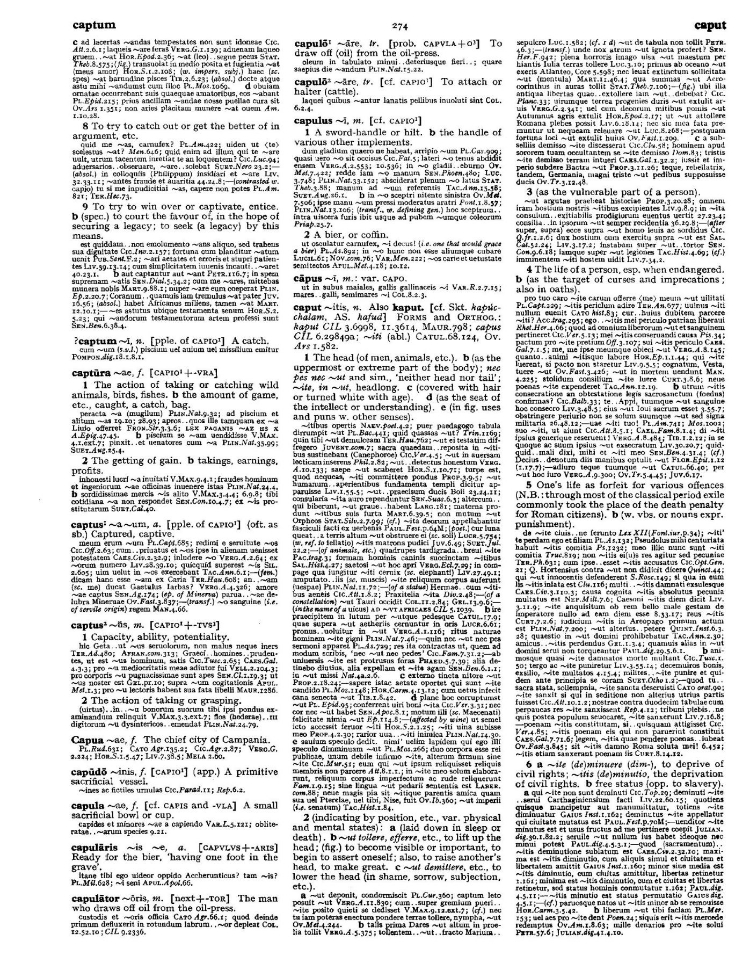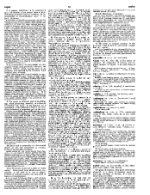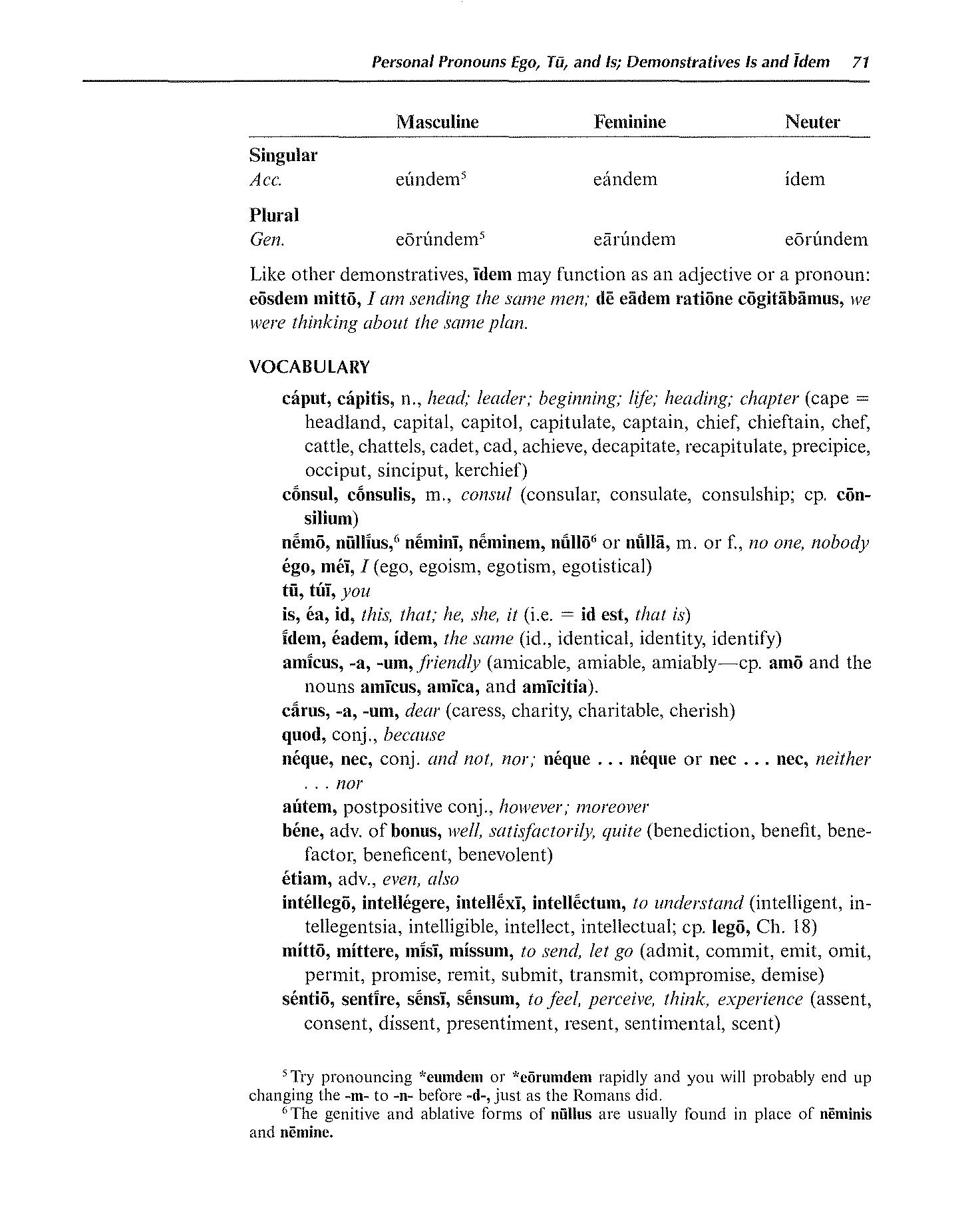
page_listing.tpl
page_subListingDetails.tpl
sub_listingDetails_style1.tpl
sub_listingDetails.title.tpl
caput head
caput is a Latin Noun that primarily means head.
Definitions for caput
Wheelock's Latin
Noun
- 1
head, leader, beginning, life, heading, chapter
English derivatives:
cape=headland capital capitol capitulate captain chief chieftain chef cattle chattels cadet cad achieve decapitate recapitulate precipice occiput sinciput kerchief
Oxford Latin Dictionary
Noun
- 1
The head (of men, animals, etc.). (b) (as the uppermost or extreme part of the body); and sim., 'neither head nor tail'; headlong. (c) (covered with hair or turned white with age). (d) (as the seat of the intellect or understanding). (e) (in fig. uses and puns w. other senses).
- 2
(indicating by position, etc., var. physical and mental states): (a) laid down in sleep or death). (b) to lift up the head; to become visible or important, to begin to assert oneself; also, to raise another's head, to make great. (c) to lower the head (in shame, sorrow, subjection, etc.).
- 3
(as the vulnerable part of a person).
Sentences with caput
Latin to English
Humana ante oculos foede cum vita iaceret in terris oppresa gravi sub religione quae caput a caeli regionibus ostendebat horribili super aspectu mortalibus instans, primum Graius homo mortalis tollere contra est oculos ausus primusquue obsistere contra.Compare When man's life lay for all to see foully groveling upon the ground, crushed beneath the weight of Religion, which displayed her head in the regions of heaven, threatening mortals from on high with horrible aspect, a man of Greece was the first that dared to uplift mortal eyes against her, the first to make stand against her.
Desine iam, Lalage, tristes ornare capillos, tangat et insanum nulla puella caput. (Martial, Epigrams II,66.3)Compare Stop, now, Lalage, to arrange your dire locks and let no maid touch your ill-tempered head.
Fama, malum qua non aliud velocius ullum: mobilitate viget virisque adquirit eundo, parva metu primo, mox sese attollit in auras ingrediturgue solo et caput inter nubila condit.Compare Rumor, the swiftest traveler of all the ills on earth, thriving on movement, gathering strength as it goes; at the start a small and cowardly thing, it soon puffs itself up, and walking upon the ground, buries its head in the cloud-base.
Profunda super nos altitudo temporis veniet, pauca ingenia caput exerent et in idem quandoque silentium abitura oblivioni resistent ac se diu vindicabunt.Compare The deep flood of time will roll over us; some few great men will raise their heads above it, and, though destined at the last to depart into the same realms of silence, will battle against oblivion and maintain their ground for long.
Iuvat integros accedere fontis atque haurire, iuvatque novos decerpere flores insignemque meo capiti petere inde coronam unde prius nulli velarint tempora musae; primum quod magnis doceo de rebus et artis religionum animum nodis exsolvere pergo, deinde quod obscura de re tam lucida pango carmina, musaeo contingens cuncta lepore.Compare I love to approach virgin springs and there to drink: I love to pluck fresh flowers, and to seek an illustrious chaplet for my head from fields whence ere this the Muses have crowned the brows of none; first because my teaching is of high matters, and I proceed to unloose the mind from the close knots of religion; next because the subject is so dark and the lines I write so clear, as I touch all with the Muses's grace.
Declension table for caput
Cactus2000
| Singular | Plural | |
| Nom. | caput | capita |
| Gen. | capitis | capitum |
| Dat. | capitī | capitibus |
| Acc. | caput | capita |
| Abl. | capite | capitibus |
Data sources
Notes
- Definitions
- Frederick M. Wheelock, Wheelock's Latin, 6th ed., rev. Richard A. LaFleur (New York, NY: HarperCollins Publishers, 2005): 71.
- P. G. W. Glare, Oxford Latin Dictionary, Vols. 1-8 (Oxford: Clarendon Press, 1982): 274.
- Word frequencies
- Christopher Francese, "Latin Core Vocabulary," Dickinson College Commentaries, last modified 2014, http://dcc.dickinson.edu.
- Paul B. Diederich, The Frequency of Latin Words and Their Endings, PhD diss., (Columbia University, 1939).
- Louis Delatte, Suzanne Govaerts, Joseph Denooz, and Etienne Evrard, Dictionnaire fréquentiel et index inverse de la langue latine [Frequency Dictionary and Inverse Index of the Latin Language] (Liège, Belgium: Laboratoire d'analyse statistique des langues anciennes de l'Université de Liège [L.A.S.L.A.], 1981): 120.
Bibliography
Allen, Joseph H. Allen and Greenough's New Latin Grammar for Schools and Colleges: Founded on Comparative Grammar. Edited by James B. Greenough, George L. Kittredge, Albert A. Howard, and Benjamin L. D'Ooge. Boston, MA: Ginn & Company, 1903.
Crystal, David. A Dictionary of Linguistics and Phonetics. 6th ed. Oxford, UK: Blackwell Publishing, 2008.
Delatte, Louis, Suzanne Govaerts, Joseph Denooz, and Etienne Evrard. Dictionnaire fréquentiel et index inverse de la langue latine [Frequency Dictionary and Inverse Index of the Latin Language]. Liège, Belgium: Laboratoire d'analyse statistique des langues anciennes de l'Université de Liège (L.A.S.L.A.), 1981.
Diederich, Paul B. The Frequency of Latin Words and Their Endings. PhD diss., Columbia University, 1939.
Francese, Christopher. "Latin Core Vocabulary." Dickinson College Commentaries. Last modified 2014. http://dcc.dickinson.edu/latin-vocabulary-list.
Gildersleeve, Basil L., and Gonzales Lodge. Gildersleeve's Latin Grammar: Third Edition, Revised, and Enlarged. 3rd ed. London, England: Macmillan and Co., 1903.
Glare, Peter G.W. Oxford Latin Dictionary. Vols. 1-8. Oxford, England: Clarendon Press, 1982.
Krüger, Bernd. "Latin Conjugation Tables." Cactus2000. Accessed May 5, 2023. https://latin.cactus2000.de/index.en.php.
Pierson, Nick. "Sound of Text." Accessed October 26, 2019. https://soundoftext.com.
Wheelock, Frederick M. Wheelock's Latin. 6th ed. Revised by Richard A. LaFleur. New York, NY: HarperCollins Publishers, 2005.
Wiktionary Contributors. "Victionarium." Wikimedia Foundation, Inc. Updated March 18, 2019. https://la.wiktionary.org/wiki/Victionarium:Pagina_prima.
Citation
Chicago (17th ed.)
Allo Contributors. "caput, capitis (n.) - Latin Word Definition." Allo Latin Dictionary. Last modified . Accessed February 20, 2026. http://ancientlanguages.org/latin/dictionary/caput-capitis.
Entry created on . Last updated on .








